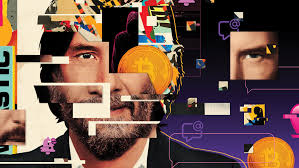
Breaking News
 High-Level Sources: Covert War In US, Israeli & Foreign Intel Agencies, Behind Epstein Case...
High-Level Sources: Covert War In US, Israeli & Foreign Intel Agencies, Behind Epstein Case...
 Hegseth Hosts Netanyahu at the Pentagon, Says It Was an 'Honor' To Be Part of the War Agains
Hegseth Hosts Netanyahu at the Pentagon, Says It Was an 'Honor' To Be Part of the War Agains
 Saagar Enjeti on the Dangerous New Developments in Pam Bondi's Epstein Cover-Up
Saagar Enjeti on the Dangerous New Developments in Pam Bondi's Epstein Cover-Up
 Does Elon Musk's Third Party Have a Prayer? Trump Is Not a Believer
Does Elon Musk's Third Party Have a Prayer? Trump Is Not a Believer
Top Tech News
 Insulator Becomes Conducting Semiconductor And Could Make Superelastic Silicone Solar Panels
Insulator Becomes Conducting Semiconductor And Could Make Superelastic Silicone Solar Panels
 Slate Truck's Under $20,000 Price Tag Just Became A Political Casualty
Slate Truck's Under $20,000 Price Tag Just Became A Political Casualty
 Wisdom Teeth Contain Unique Stem Cell That Can Form Cartilage, Neurons, and Heart Tissue
Wisdom Teeth Contain Unique Stem Cell That Can Form Cartilage, Neurons, and Heart Tissue
 Hay fever breakthrough: 'Molecular shield' blocks allergy trigger at the site
Hay fever breakthrough: 'Molecular shield' blocks allergy trigger at the site
 AI Getting Better at Medical Diagnosis
AI Getting Better at Medical Diagnosis
 Tesla Starting Integration of XAI Grok With Cars in Week or So
Tesla Starting Integration of XAI Grok With Cars in Week or So
 Bifacial Solar Panels: Everything You NEED to Know Before You Buy
Bifacial Solar Panels: Everything You NEED to Know Before You Buy
 INVASION of the TOXIC FOOD DYES:
INVASION of the TOXIC FOOD DYES:
 Let's Test a Mr Robot Attack on the New Thunderbird for Mobile
Let's Test a Mr Robot Attack on the New Thunderbird for Mobile
 Facial Recognition - Another Expanding Wolf in Sheep's Clothing Technology
Facial Recognition - Another Expanding Wolf in Sheep's Clothing Technology
This Is Not Keanu: Inside the Billion-Dollar Celebrity Impersonation Bitcoin Scam

In November, Margaret climbed into her Toyota Camry, left her husband of 10 years at their comfortable brick home in the rural South and drove an hour to a hotel where — she was sure — Kevin Costner was coming to meet her.
By this point, Margaret, 73, had spent months making weekly bitcoin deposits for Costner totaling about $100,000. He had messaged her that he was using the money to set up a new production company where she would eventually work for him. Margaret knew that some people would find it odd that an Oscar winner and the star of Yellowstone would need financing help from a retired office manager whom he'd met on Facebook, but Margaret wasn't exactly a nobody. She had achieved some renown for activism she'd done, even delivered a TED talk. She was special, and Costner saw it. She also was lonely and restless as her marriage was failing, her career had ended and her kids and grandkids were busy with their own lives. Costner's messages represented some welcome male attention, a fantasy to drop into when real life got too real. In one photo he sent, the actor leaned against the wooden headboard of a bed in a white T-shirt, holding a piece of paper that read, "it's really me Kevin Costner I love you so much MARGARET i can't wait to meet you MARGARET."
There was some discussion of flying Margaret out to L.A. before they settled on a hotel in her home state as their meeting place. By the time she got in her car, Margaret had already had her suitcases packed for weeks, ready for the moment when she and Costner would finally be together.
"Her thing is, 'I just want somebody to love me,' " says Margaret's sister, Carol, in one of many phone conversations we would have over a period of several weeks this spring and summer as her worries about Margaret grew. (Both women's names have been changed to protect their privacy).
As Margaret waited there in the room on pins and needles, Costner sent her a photo — a picture of a mangled car. He said that he'd been in an accident and wouldn't make it after all. As she stared at the photo, all the warning signs that Margaret had been willfully avoiding over all these months of buildup and bitcoin payments began to creep into view.
Online scams take many forms, but the ones weaponizing celebrity fandom are getting intense notice in Hollywood right now. With scammers aided by such rapidly evolving tools as AI, cryptocurrencies and messaging apps that make it easy to disseminate fakes and operate undetected, stars and talent agencies find themselves in an escalating game of Whac-A-Mole, hiring companies to scan the web for fakes and getting those accounts shut down. Some 400 performers, including Scarlett Johansson, Common and SAG-AFTRA president Fran Drescher, have signed on to support legislation making its way through Congress called the No Fakes Act, which seeks to create protections for artists' voices, likenesses and images from unauthorized AI-generated deep fakes.
"Celebrities just have so many images out there," says Nick Berta, a supervisory special agent in the FBI's economic crimes unit. "The ease with which scammers can use their tools to manipulate voice and audio and video, it's very difficult for [public figures] to protect themselves."



